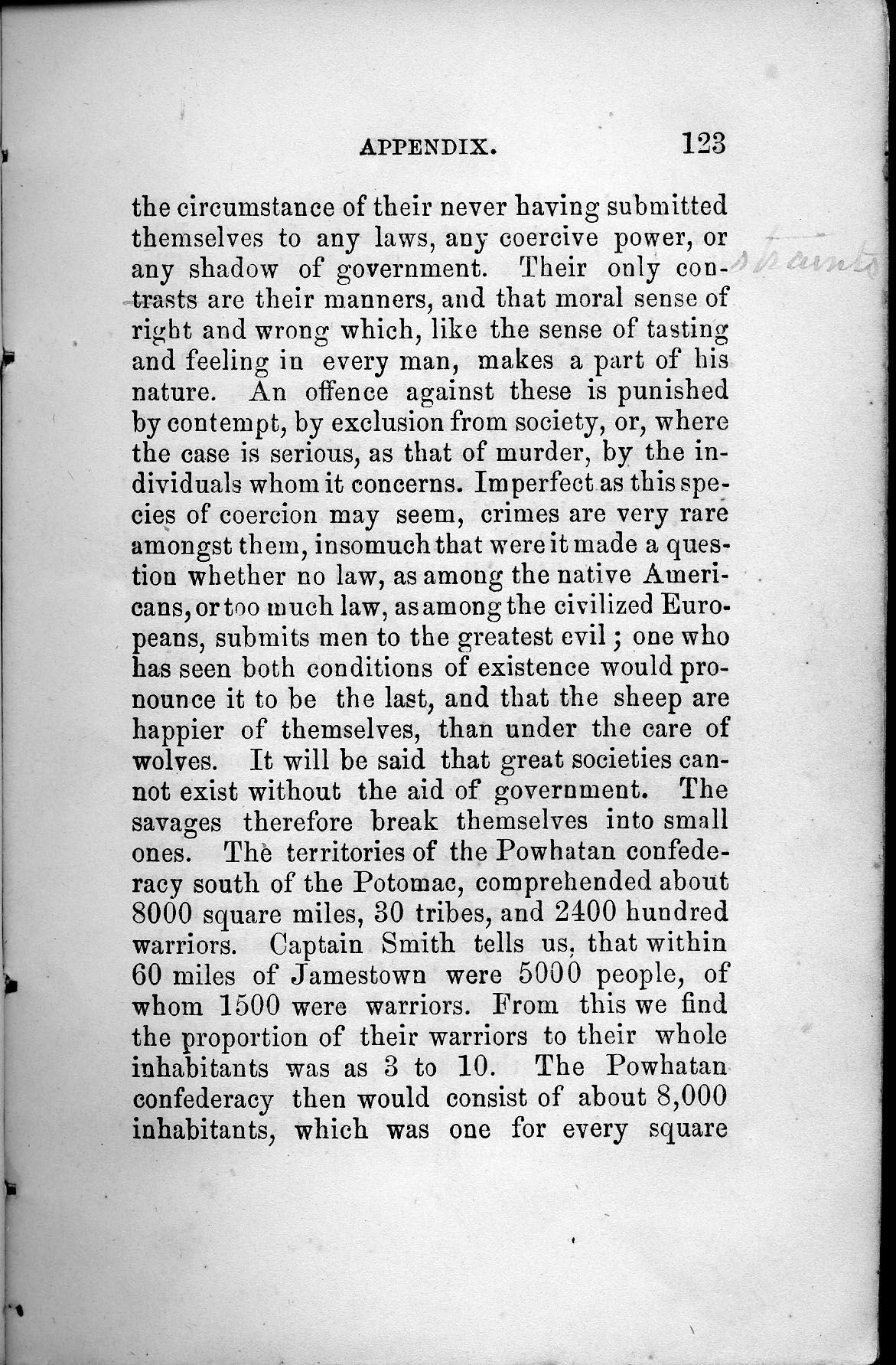the
circumstance of their never having submitted
themselves to any
laws, any coercive power, or
any shadow of government. Their only
con-straints
trasts are their
manners, and that moral sense of
right and wrong which, like the
sense of tasting
and feeling in every man, makes a part of his
nature. An offence against these is punished
by contempt, by
exclusion from society, or, where
the case is serious, as that of
murder, by the in-
dividuals whom it concerns. Imperfect as this
spe-
cies of coercion may seem, crimes are very rare
amongst
them, in so much that were it made a ques-
tion whether no law, as
among the native Ameri-
cans, or too much law, as among the
civilized Euro-
peans, submits men to the greatest evil; one
who
has seen both conditions of existence would pro-
nounce it
to be the last, and that the sheep are
happier of themselves, than
under the care of
wolves. It will be said that great societies
can-
not exist without the aid of government. The
savages
therefore break themselves into small
ones. The territories of the
Powhatan
racy south of the Potomac, comprehended about
8000 square miles, 30 tribes, and 2400 hundred
warriors. Captain Smith
60 miles of Jamestown
whom 1500 were warriors. From this we find
the proportion of their warriors to their whole
inhabitants was as 3 to 10.
The Powhatan
confederacy then would cosist of about 8,000
inhabitants, which was one for every square

